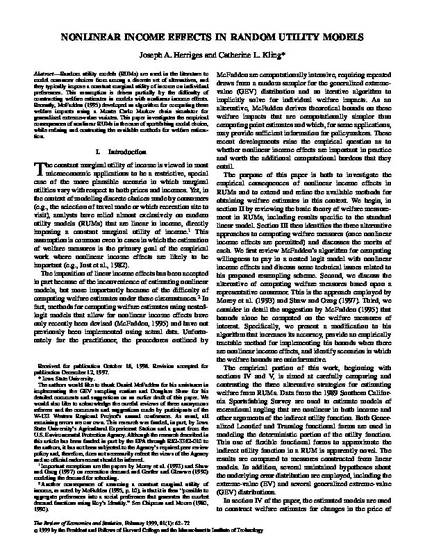
Article
Nonlinear Income Effects in Random Utility Models
Review of Economics and Statistics
Document Type
Article
Disciplines
Publication Version
Published Version
Publication Date
2-1-1999
DOI
10.1162/003465399767923827
Abstract
Random utility models (RUMs) are used in the literature to model consumer choices from among a discrete set of alternatives, and they typically impose a constant marginal utility of income on individual preferences. This assumption is driven partially by the difficulty of constructing welfare estimates in models with nonlinear income effects. Recently, McFadden (1995) developed an algorithm for computing these welfare impacts using a Monte Carlo Markov chain simulator for generalized extreme-value variates. This paper investigates the empirical consequences of nonlinear RUMs in the case of sportfishing modal choice, while refining and contrasting the available methods for welfare estimation.
Copyright Owner
MIT Press
Copyright Date
1999
Language
en
File Format
application/pdf
Citation Information
Joseph A. Herriges and Catherine L. Kling. "Nonlinear Income Effects in Random Utility Models" Review of Economics and Statistics Vol. 81 Iss. 1 (1999) p. 62 - 72 Available at: http://works.bepress.com/catherine_kling/5/

This article is from Review of Economics and Statistics 81 (1999): 62, doi:10.1162/003465399767923827. Posted with permission.